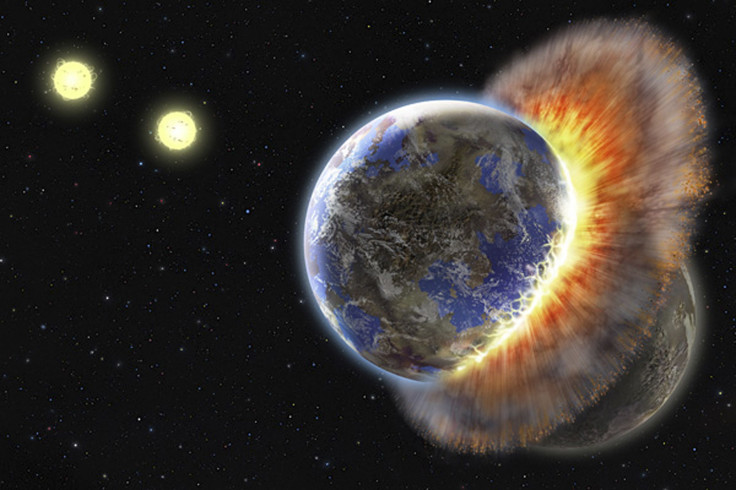New Study Casts Doubts Over Role Of Meteorites As 'Building Blocks' Of Planets

Scientists have long believed that meteorites, along with clouds of gas and dust, played a key role in the formation of planets during the infancy of our solar system. However, a recent study conducted by a team of researchers from Massachusetts Institute of Technology (MIT) and Purdue University has cast doubts over the role of meteorites as building blocks of planets.
Meteorites, which are chunks of metal and rocks, are studded with chondrules -- miniscule, spherical grains of solidified melted rocks. In our current understanding of the mechanism of planet formation, chondrules are believed to have played a fundamental role. Scientists believe that in the early stages of our solar system, these grains of rocks started to coalesce, accreting clouds of dust and gas that eventually led to formation of larger planetary precursors.
“Understanding the origin of chondrules is like looking through the keyhole of a door; while we can't see all that is happening behind the door, it gives us a clear view of one part of the room and a glimpse into the very beginnings of our solar system,” said Purdue University's Jay Melosh, who was involved in the research, according to a statement published by the university on Wednesday.
In the latest study, published in the journal Nature, scientists claimed that meteorites may have been byproducts of planetary formation -- essentially turning a part of the current understanding of the early solar system on its head. Using computer simulations to create collisions between “protoplanets,” which are celestial bodies between the size of the moon and an asteroid, the researchers found that bodies the size of the moon formed much earlier than the formation of chondrules. Using these simulations, they also determined that chondrules were probably created during collision of protoplanets, which smashed into each other with such force that it melted some of their material and spewed out molten rock.
“Chondrules were long viewed as planetary building blocks … it’s ironic that they now appear to be the remnants of early protoplanetary collisions,” said Maria Zuber, an MIT professor, who was involved in the study, according to MIT News.
Brandon Johnson, a researcher at MIT, reportedly said that the findings of their study indicated that the early solar system “was more violent” than expected. "You had these massive sprays of molten material getting ejected out from these really big impacts. It’s an extreme process."
© Copyright IBTimes 2024. All rights reserved.






















